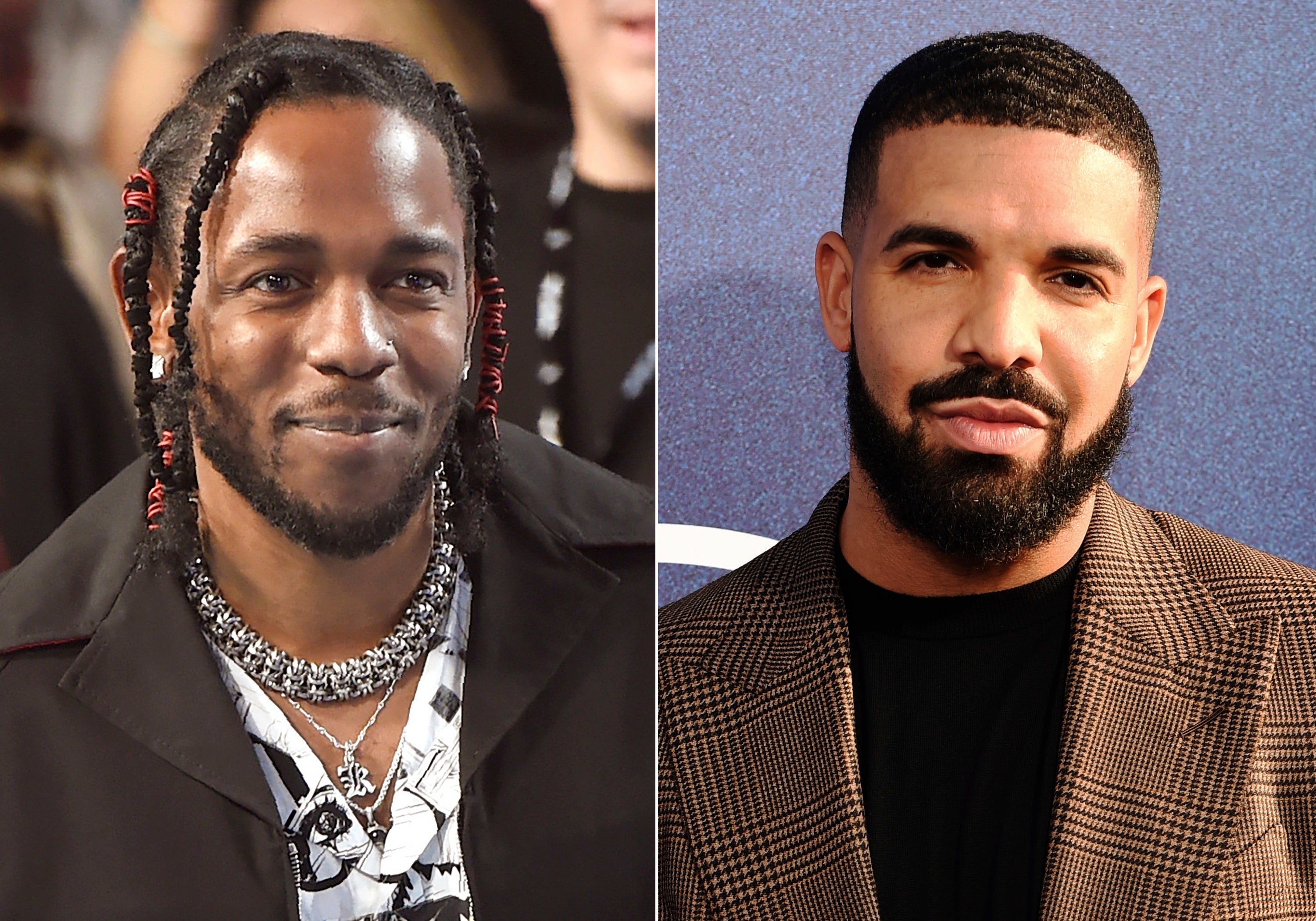Drake alleges Universal and Spotify falsely inflated Kendrick Lamar diss track 'Not Like Us'
Drake has begun legal action against Universal Music Group and Spotify, alleging they conspired to falsely pump up the popularity of Kendrick Lamar’s “Not Like Us.”

Your support helps us to tell the story
From reproductive rights to climate change to Big Tech, The Independent is on the ground when the story is developing. Whether it's investigating the financials of Elon Musk's pro-Trump PAC or producing our latest documentary, 'The A Word', which shines a light on the American women fighting for reproductive rights, we know how important it is to parse out the facts from the messaging.
At such a critical moment in US history, we need reporters on the ground. Your donation allows us to keep sending journalists to speak to both sides of the story.
The Independent is trusted by Americans across the entire political spectrum. And unlike many other quality news outlets, we choose not to lock Americans out of our reporting and analysis with paywalls. We believe quality journalism should be available to everyone, paid for by those who can afford it.
Your support makes all the difference.Drake has begun legal action against Universal Music Group and Spotify, alleging they conspired to falsely pump up the popularity of Kendrick Lamar's “Not Like Us," a song that viciously attacked Drake amid a bitter feud between the two hip-hop superstars.
The petition in a New York court on Monday by the rapper's company Frozen Moments LLC demands the preservation and divulgence of information that might be evidence in a potential lawsuit against the streaming giant Spotify and UMG, which is the distributor for the record labels of both Drake and Lamar.
In allegations that UMG calls “offensive and untrue,” the filing says UMG “launched a campaign to manipulate and saturate the streaming services and airwaves with a song, ‘Not Like Us,’ in order to make that song go viral, including by using ‘bots’ and pay-to-play agreements.” It said the company and Spotify “have a long-standing, symbiotic business relationship” and alleges that UMG offered special licensing rates to Spotify for the song.
The petition also says UMG has fired employees seen as loyal to Drake "in an apparent effort to conceal its schemes."
Universal Music Group said in a statement in response that the "suggestion that UMG would do anything to undermine any of its artists is offensive and untrue. We employ the highest ethical practices in our marketing and promotional campaigns. No amount of contrived and absurd legal arguments in this pre-action submission can mask the fact that fans choose the music they want to hear.”
“Not Like Us,” the wildly popular Lamar single released in May as part of a flurry of dueling tracks by the two artists, includes the lyrics, “Say, Drake, I hear you like ’em young, You better not ever go to cell block one.” It has gotten more than 900 million plays, according to figures listed on Spotify.
Spotify representatives declined immediate comment, but in a statement on a previous case the company said it “invests heavily in automated and manual reviews to prevent, detect, and mitigate the impact of artificial streaming on our platform,” and in broader public statements has said it has gone to great lengths to mitigate the effects of bad actors on streaming numbers and royalties.
The feud between Drake, a 38-year-old Canadian rapper and singer and five-time Grammy winner; and Lamar, a 37-year-old Pulitzer Prize winner who is set to headline the next Super Bowl halftime, is among the biggest in hip-hop in recent years, with two of the genre's biggest stars at its center.
The two were occasional collaborators more than a decade ago, but Lamar began taking public jabs at Drake starting in 2013. The fight escalated steeply earlier this year. The move to court, while not yet a lawsuit, still represents a major escalation of the feud and involves some of the biggest business partners of both men.